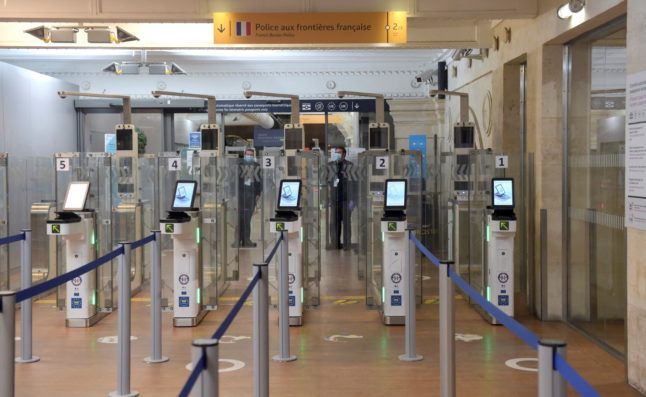Face masks have become key in the French government's preventive strategy to curb the coronavirus spread in the country.
Across France, masks are compulsory both inside public spaces and on public transport, in secondary schools, high schools and in the workplace.
Piling onto the nationwide rules, hundreds of local authorities have issued rules on mask-wearing outside too, with nearly a dozen big cities – including Paris, Nice and Marseille – introducing blanket rules that mean anyone leaving their home must wear a mask.
Some have complained that, due to the increasingly strict rules on mask-wearing, the government should make masks free for everyone.
'Uncomfortable but vital' – Why three quarters of French people support tough mask rules
While capping the price of face masks, the government has said it will not make them free – bar few exceptions.
According to a new government decree, these groups are entitled to free masks;
- People on complementary health insurance (CSS) or State medical aid (AME) who received masks by post at the end of July;
- Vulnerable people likely to develop severe forms of Covid-19 can pick up free masks in pharmacies on medical prescription. The government previously published a decree detailing who qualifies as “vulnerable” (people aged over 65 with diabetes, cancer patients, HIV patients, people on dialysis etc).
- Anyone who has tested positive for Covid-19 and who has a medical prescription;
- Anyone identified as living in the same household as someone with the virus.
Fabric, surgical or filter – what are the rules in France on mask types?
Certain groups also benefit from free masks through their job;
- Employees who are required to wear a mask at work are not themselves responsible for purchasing these masks, their employer is (only during work hours, except for vulnerable people who are to receive masks for their commute to and from work). Anyone who works in a shared indoor workplace must now wear a mask at work – for more details on the rules, click here.
- Public health workers and social workers get their masks from the government.
- Doctors, dentists, medical biologists, midwives, nurses, and health personnel working with Covid-19 PCR tests have the right to 24 masks per week;
- Pharmacists, physiotherapists, medical technicians, medical physicists, pharmacy assistants and laboratory technicians have the right to 18 masks per week;
- Hearing care professionals, dieticians, therapists, opticians, speech therapists, orthoptists, chiropodists, prosthetists and orthotists, psychomotor therapists, chiropractors, osteopaths and psychologists have the right to 12 masks per week.
- Home helps and carers
- Service providers and equipment distributors
Covid-19 patients and medical professionals receive one-use surgical masks or filter masks, but the masks sent out to low-income families are washable fabric masks.
There's no pattern option though, so if you want to pimp up your mask then you might have to pay out.



 Please whitelist us to continue reading.
Please whitelist us to continue reading.
Member comments